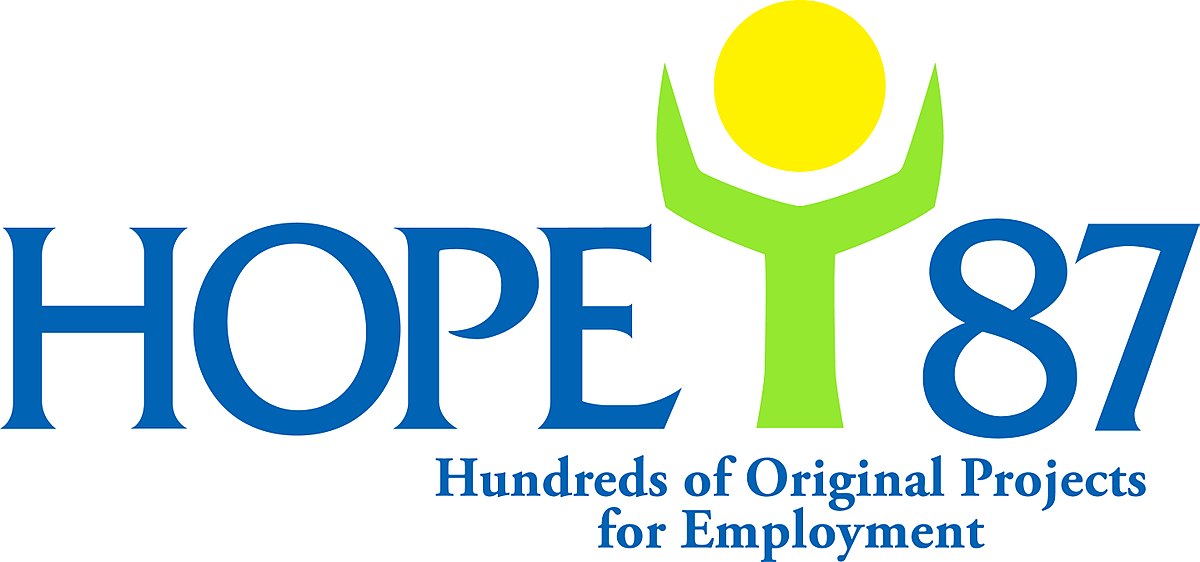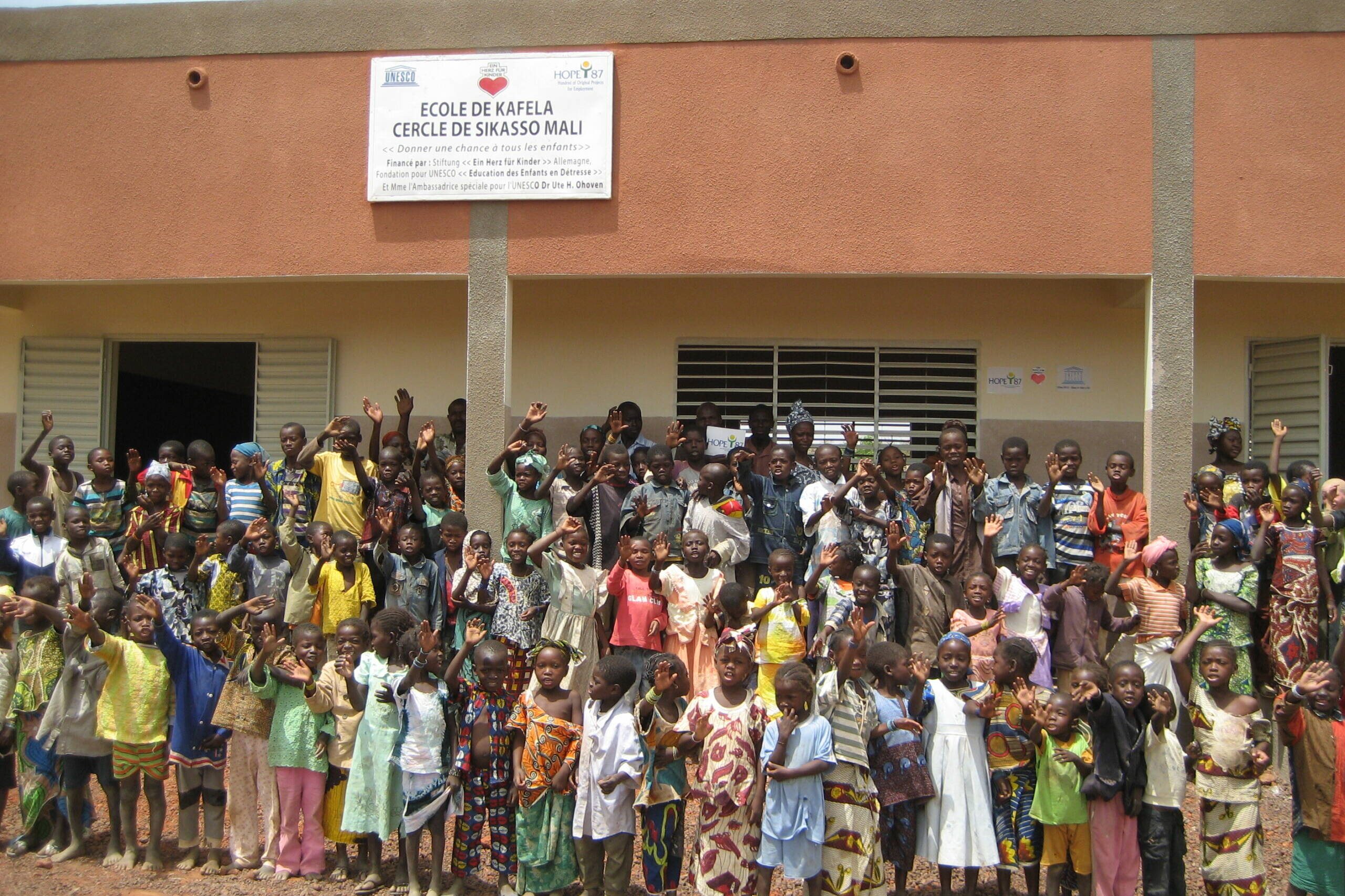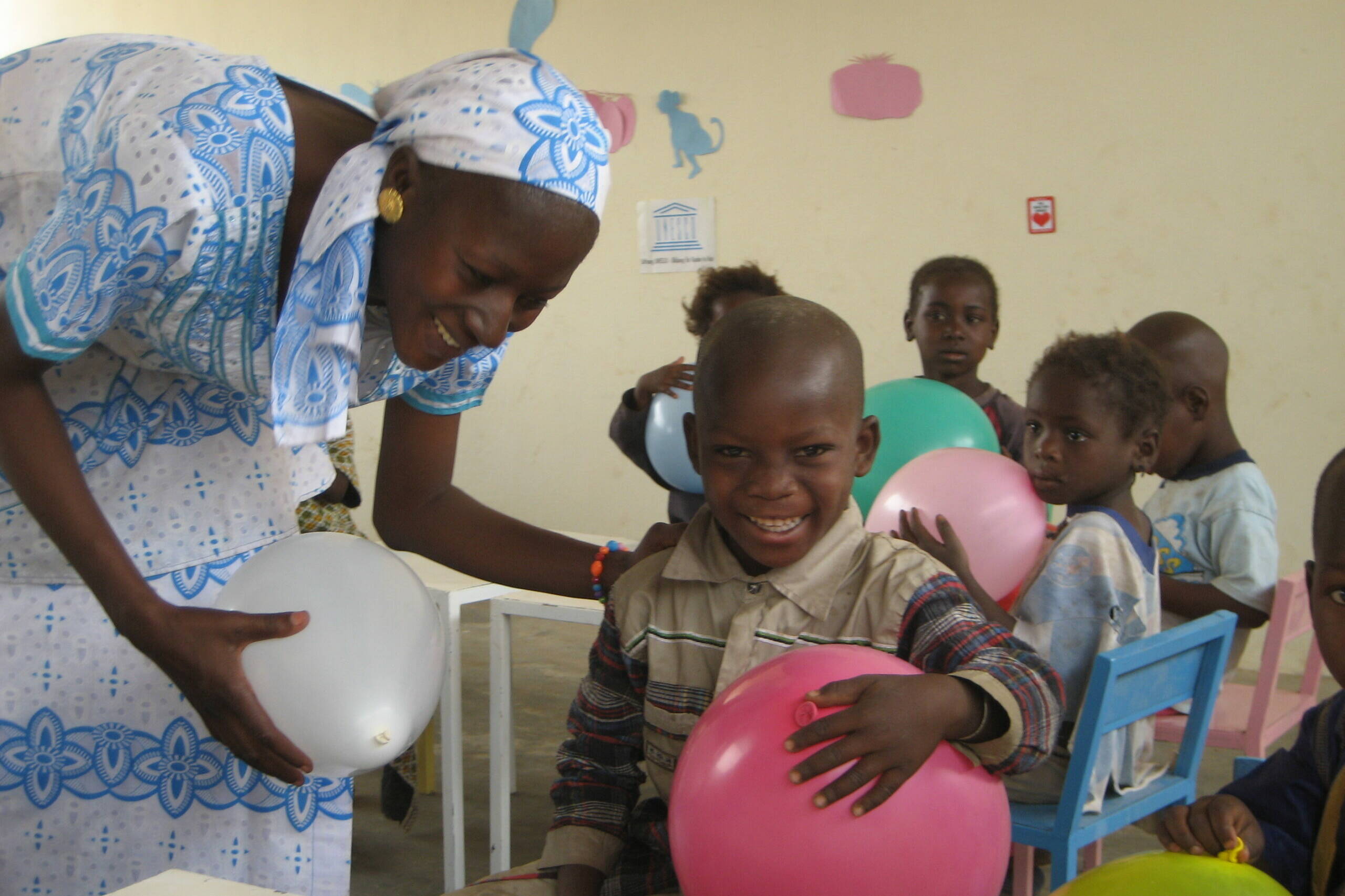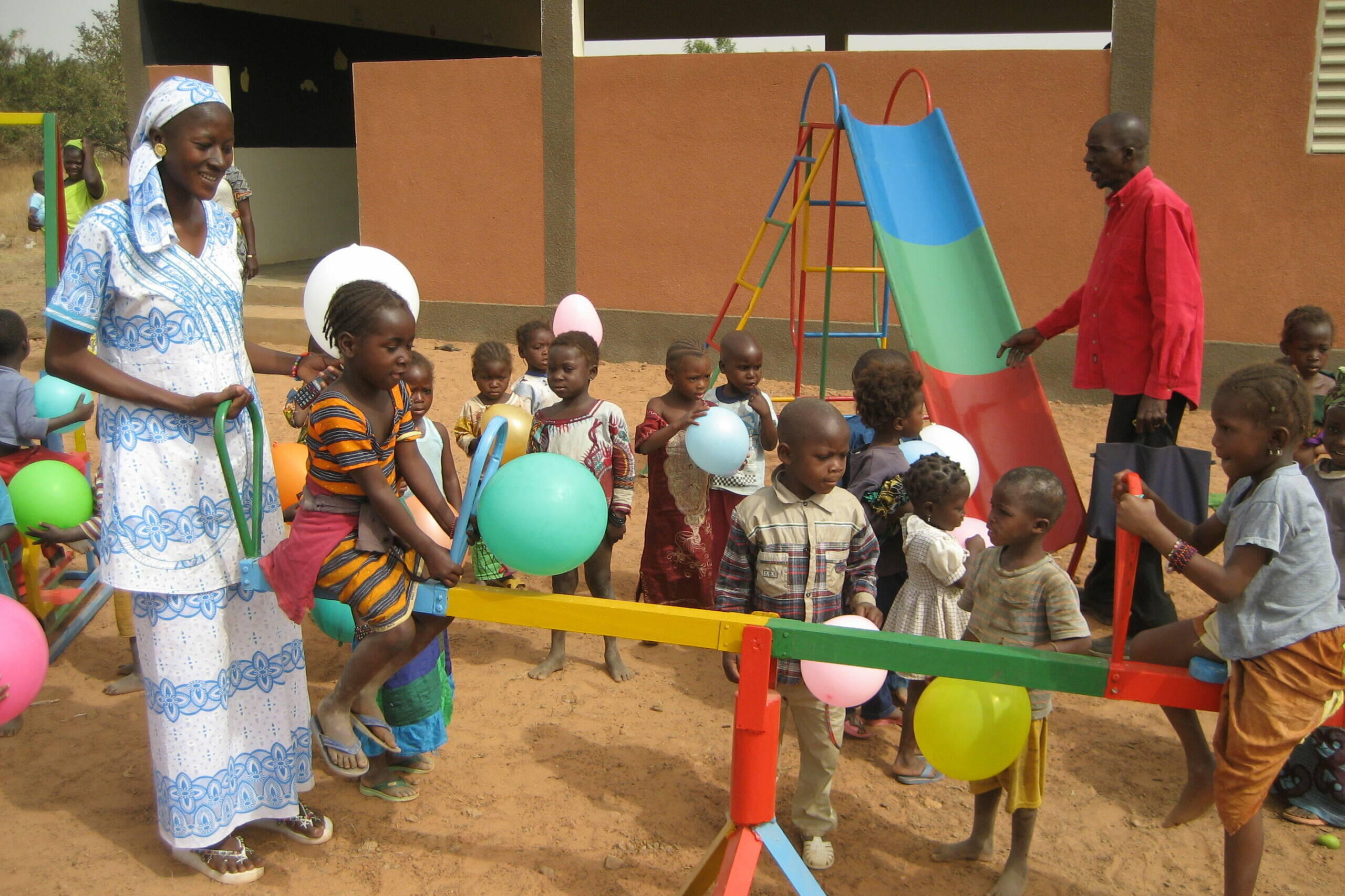Improvement of the living conditionsof vulnerable populations in rural areas
Implemented jointly in Kénédougou in Burkina Faso and in Sikasso in Mali, this UNESCO-funded multi-country project, which started in November 2008, aimed at improving the living conditions of the rural population in the two project countries. Emphasis was placed on education for children, water supply and improvement of hygiene and sanitation. The project consisted of 3 phases. The first phase, which was completed in May 2009, focused on water supply and the furnishing of existing primary schools in the area. During the second phase, which ran until May 2010, two primary schools were built and equipped – one in Koloko, Burkina Faso and one in Finkolo, Mali. The school in Kaféla near Sikasso (Finkolo) was established and 3 classes for 250 children were equipped. Furthermore, toilets could be built in the school courtyard and school kits were distributed. In the third and final phase, which ran until November 2011, two kindergartens (one in Koloko and one in Finkolo) were constructed and equipped. The education constituent also enabled HOPE’87 to equip the kindergarten of Bougoula with chairs, tables and games and to donate stationary kits to teachers. The health constituent of the project permitted the reinforcement of the equipment of Finkolo health centre with beds, mats and cradles for newborn babies. Further activities included the distribution of 750 treated mosquito nets to women and training regarding major diseases such as HIV/Aids, malaria and also malnutrition. Administrative, communal and technical authorities and associations linked with education and health were involved in the implementation of the project at all levels to ensure durability of the action. All these efforts benefited a population of about 35,000.
Project Background:
Mali faces numerous health challenges related to poverty, malnutrition, and inadequate hygiene and sanitation. Mali’s health and development indicators rank among the worst in the world. Malaria and other arthropod-borne diseases are prevalent in Mali, as are a number of infectious diseases such as cholera and tuberculosis. Public education in Mali is in principle provided free of charge and is compulsory for nine years between the ages of 7 and 16. However, Mali’s current primary school enrolment rate is low, largely because families are unable to cover the cost of uniforms, books, supplies, and other fees required to attend.
Burkina Faso was also strongly affected by the two crises of the Sahel region: on the one hand the food and nutrition crisis and the other hand by the high number of Malian refugees, which had to flee from the conflict in their country. A high number of them are settled in various refugee camps in Burkina Faso. Additionally, the local population is strongly affected by the food crisis.
Project Type
Development Project, Education
Project Duration
01/11/2008 to 31/05/2012
Status
Completed
Country
Burkina Faso / Mali
Region
Koloko (Burkina Faso) and Finkolo (Mali)
Donor(s)
UNESCO Foundation, Ein Herz für Kinder, HOPE'87



